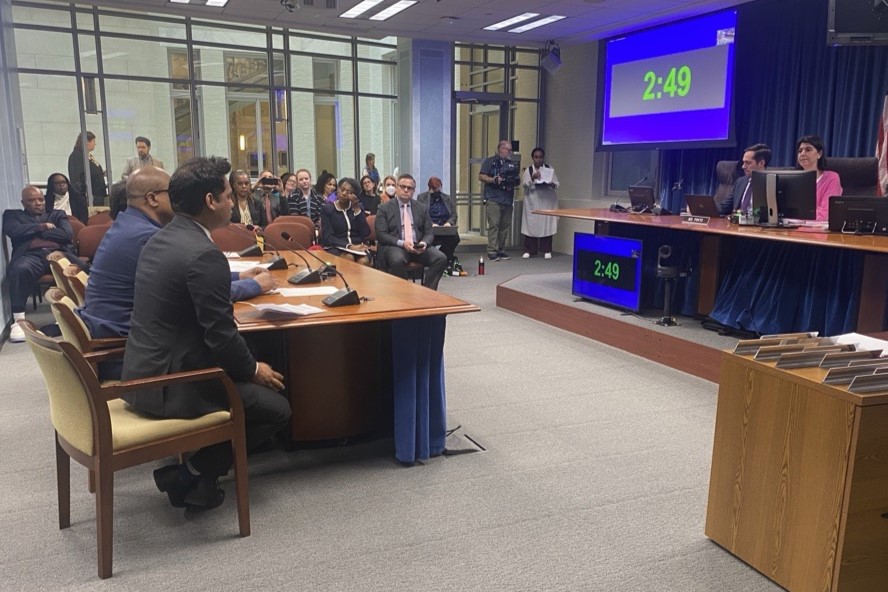The DC Council approved a challenging budget for fiscal year 2025, protecting several key programs that were on the chopping block but still leaving alarming gaps in funding that will have long-term effects on low-income residents.
The budget season began with the mayor transmitting to the Council a budget that would have slashed the safety net and further undermined the economic stability of residents living in poverty. Despite this concerning start to the budget cycle, the Council improved the mayor’s budget and restored critical funding after strong advocacy of District organizations and community members.
Although the Council made investments in programs and services such as Emergency Rental Assistance (ERAP) and housing vouchers, many programs such as these remain underfunded. Here’s where things stand for Legal Aid’s top budget priorities.
1) Emergency Rental Assistance Program (ERAP)
The Council added $6.7 million to the mayor's proposed $20.2 million for ERAP, far short of the $63 million (including federal dollars) invested in the program in the previous year.
2) Housing Vouchers
The Council added over 600 new housing vouchers for individuals and families to the FY2025 budget. The mayor hadn’t proposed funding for any new housing vouchers, even though housing in the District has become increasingly unaffordable. The Council’s investment, a significant improvement, still falls short of the need, as the city faces an ongoing affordable housing crisis,
3) Give SNAP A Raise
Supplementary Nutritional Assistance (SNAP) benefits will fall back to 2023 levels next year. We advocated for the Council to preserve at least part of 2024’s one-time increase to the program, which was funded through excess revenues, and find a way to maintain additional SNAP benefits for seniors. Nearly 1 in 5 District residents will have less food on the table starting in October.

4) Access to Justice
The Council fully restored funding to the Access to Justice program, a major relief to civil legal services providers like Legal Aid DC. The mayor's budget proposed a 67 percent cut to this program, which would have reduced funding from approximately $31.5 million in 2024 to $10.5 million in 2025. The Council, as it did last year, acted to ensure that residents facing eviction, domestic violence, housing issues, problems with public benefits, and more don't have to navigate the court system alone.
In addition to these priorities, the Council restored funding for the Pay Equity Fund, Baby Bonds, and the DC Earned Income Tax Credit (EITC) and made new investments in a Child Tax Credit and increasing the Clean Hands debt threshold.
Legal Aid appreciates the Council's investment in programs that serve low-income DC residents, but we urge members to commit to stable recurring funding for our priority areas using sustainable, equitable revenue streams. Because many of these investments were made on a one-year basis, we will need to continue to work toward greater sustainability in these programs.




